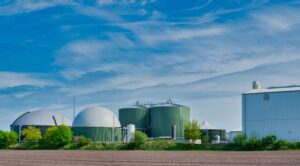Chairperson of the Southern African Biogas Industry Association (SABIA) Jason Gifford, has revealed that the association placed the Southern African biogas industry’s direct local and foreign investment value at between R52 billion and R250 billion.
Many countries in Africa are faced with serious energy shortage. In rural areas, there are frequent power outages and insufficient energy assets in most African countries. There is also a high dependency on biomass-based and fossil-based energy generation systems which are harmful to the environment. It is undeniable that people in these countries generate large amounts of waste – from agricultural waste to municipal and food waste etc – all of which have great energy generation potential. Chief Climate Finance Officer at the African Development Bank and keynote speaker at the DiBiCoo Local Stakeholder Workshop, Dr Timothy Afful-Koomson added that these are resources that could be transformed into “clean and affordable energy, to help deal with loadshedding and improve accessibility and reliability of electricity supply in the African countries”.Dr Afful-Koomson added that the concept of using biogas in Africa should be highly considered as emissions reduction ability of biogas is much higher than other forms of renewable energy, such as solar, because biogas prevents the production of methane, which contributes to global warming than carbon.
“Unfortunately, less than 30% of African countries have biogas as one of the renewable energies systems to meet their NDC [Nationally Determined Contributions] targets.” Inspection available funding According to research there is a lot of funding available for projects. However, all types of financing must first be considered and assessed to see what is suitable for the developing market. Often specific financing models for a developing market are not available.






